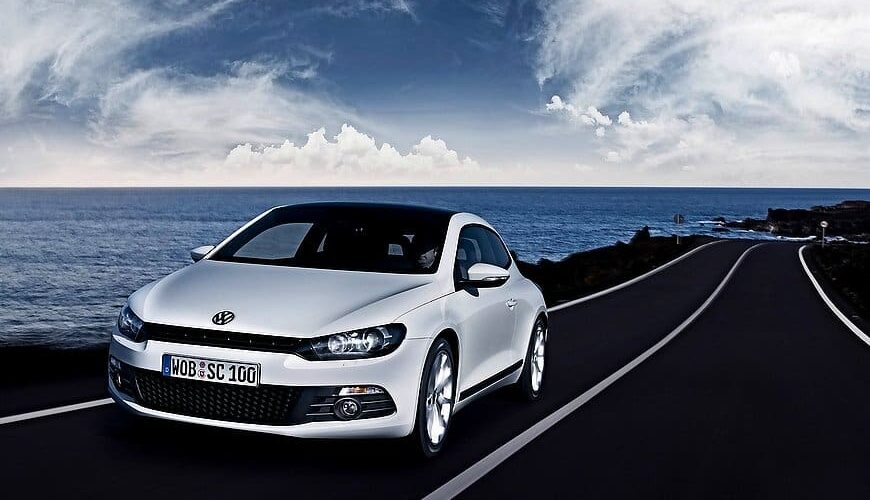Volkswagen – A Comprehensive Overview

Volkswagen, a German automotive giant founded in 1937, has established itself as one of the most influential and innovative players in the global automobile industry. The company designs, manufactures, and distributes passenger and commercial vehicles, motorcycles, engines and turbomachinery, as well as offers related services, including financing, leasing, and fleet management. In 2016, it was the world’s largest automaker by sales, and keeping this title in 2017, 2018, and 2019, selling 10.9 Mil vehicles and was the largest automaker by revenue in 2022.
Founder of Volkswagen

- Ferdinand Porsche
History
Volkswagen’s journey began with the vision of Ferdinand Porsche and the support of the German government. The company’s first major success came with the production of the Volkswagen Beetle, or “People’s Car,” designed to be affordable and accessible to the masses. The Beetle became a cultural icon and laid the foundation for Volkswagen’s future success.
It has maintained the largest market share in Europe for over two decades. It ranked seventh in the 2020 Fortune Global 500 list of the world’s largest companies. In Forbes Global 2000 2023 Volkswagen Group ranked 29th.. Over the decades, Volkswagen expanded its lineup to include a wide range of vehicles, from compact cars to luxury sedans, SUVs, and commercial vehicles. The acquisition of brands like Audi, Porsche, and Bentley further diversified Volkswagen’s portfolio, enabling it to cater to different market segments and consumer preferences.
The Volkswagen Group sells passenger cars under the Audi, Bentley, Bugatti, Cupra, Jetta, Lamborghini, Porsche, SEAT, Škoda and Volkswagen brands, motorcycles under the Ducati name, light commercial vehicles under the Volkswagen Commercial Vehicles brand, and heavy commercial vehicles via the marques of the listed subsidiary Traton (Navistar, MAN, Scania and Volkswagen Truck & Bus)
Corporate Structure
Volkswagen operates under a decentralized structure, with various brands and subsidiaries operating semi-autonomously within the Volkswagen Group. The Volkswagen Passenger Cars brand serves as the flagship division, offering a diverse range of vehicles including the Golf, Jetta, Passat, and Tiguan.
Other notable brands under the Volkswagen Group umbrella include Audi, known for its luxury vehicles and innovative technology; Porsche, renowned for its sports cars and performance-oriented models; and Škoda, recognized for its value-driven offerings and practicality.
Notable Models
Volkswagen has produced numerous iconic models that have left a lasting impact on the automotive industry. Some of the most notable Volkswagen vehicles include:
- Volkswagen Beetle: The quintessential “People’s Car” that became a symbol of affordability and practicality.
- Volkswagen Golf: A versatile and highly acclaimed compact car that has undergone multiple generations and iterations since its debut in 1974.
- Volkswagen Passat: A midsize sedan known for its spacious interior, refined driving dynamics, and advanced features.
- Volkswagen Tiguan: A popular compact SUV offering a perfect blend of comfort, versatility, and performance.
Technological Innovations
Volkswagen has been at the forefront of automotive innovation, continually introducing groundbreaking technologies to enhance safety, performance, and sustainability. Some of Volkswagen’s notable technological innovations include:
- Modular Transverse Toolkit (MQB): A flexible platform architecture that underpins many Volkswagen models, enabling efficient production, scalability, and adaptability.
- Electrification: Volkswagen has committed to a comprehensive electrification strategy, with the introduction of electric vehicles like the Volkswagen ID.3 and ID.4, as well as plug-in hybrid variants of existing models.
- Connectivity and Infotainment: Volkswagen’s Car-Net system offers seamless connectivity, navigation, and entertainment features, including smartphone integration, voice commands, and remote vehicle control.
Future Outlook
Looking ahead, Volkswagen is poised to play a significant role in shaping the future of mobility. The company has set ambitious goals to reduce carbon emissions, increase electrification, and develop autonomous driving technologies. With investments in research and development, strategic partnerships, and innovative product offerings, Volkswagen aims to maintain its position as a leader in the automotive industry while embracing the challenges and opportunities of the future.
Stock market listings
Volkswagen AG shares are primarily traded on the Frankfurt Stock Exchange, and are listed under the ‘VOW’ and ‘VOW3’ stock ticker symbols. First listed in August 1961, the shares were issued at a price of DM 350 per DM 100 share, Volkswagen AG shares are now separated into two different types or classes: ‘ordinary shares’ and ‘preference shares’. The ordinary shares are now traded under the WKN 766400 and ISIN DE0007664005 listings, and the preference shares under the WKN 766403 and ISIN DE0007664039 listings.
Volkswagen AG shares are also listed and traded on other major domestic and worldwide stock exchanges. In Germany’s domestic exchanges, since 1961 these include those in Berlin, Düsseldorf, Hamburg, Hanover, Munich and Stuttgart. International exchanges include those in Basel (listed in 1967), Geneva (1967), Zürich (1967), Luxembourg (1979), London (1988), and New York (1988)
Conclusion
In conclusion, Volkswagen’s rich history, diverse portfolio, technological innovations, and forward-thinking approach position it as a driving force in the automotive landscape. Whether it’s through iconic models like the Beetle, cutting-edge electric vehicles like the ID. series, or pioneering advancements in sustainability and connectivity, Volkswagen continues to inspire and innovate, shaping the way we move and experience the world around us








